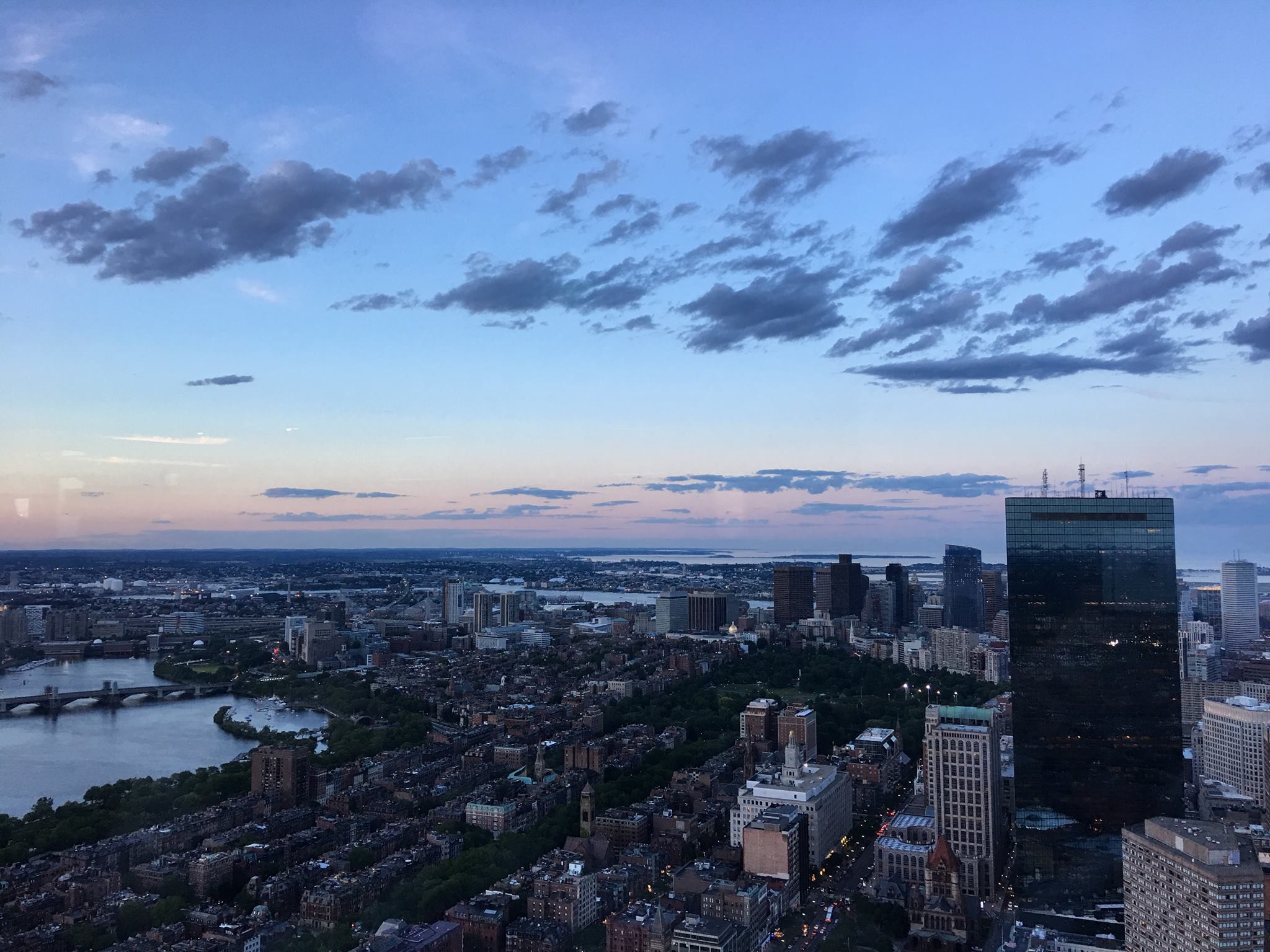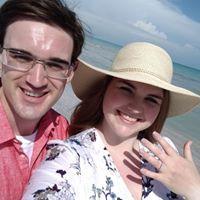
blc073
-
Posts
186 -
Joined
-
Last visited
-
Days Won
6
Reputation Activity
-
 blc073 got a reaction from SysEvo in 2018 Applicant Profiles and Admissions Results
blc073 got a reaction from SysEvo in 2018 Applicant Profiles and Admissions Results
The 2018 application cycle begins in a couple of months, so I thought it would be nice to start a new profiles and results thread. As is tradition, I am copying the 2017 thread for consistency. Use the following template to enter your information, before and after you obtain your results, and remember to submit your results at the end of the cycle for posterity and to help the next cohort of applicants HERE. Good luck with the application process, and remember to ask questions!
Below are some useful links:
Ask questions about the PhD application process!
2017 Applicant Profiles and Admissions Results
2016 Applicant Profiles and Admissions Results
Undergrad Institution: (School or type of school, such as big state, lib arts, ivy, technical, foreign (what country?)... Overall Reputation in Biology?)
Major(s):
Minor(s):
GPA in Major:
Overall GPA:
Position in Class: (No numbers needed, but are you top? near top? average? struggling?)
Type of Student: (Domestic/International, male/female, minority?)
GRE Scores (revised/old version):
Q:
V:
W:
B:
TOEFL Total: (if applicable, otherwise delete this)
Research Experience: (At your school or elsewhere? What field? How much time? Any publications (Mth author out of N?) or conference talks etc...)
Awards/Honors/Recognitions: (Within your school or outside?)
Pertinent Activities or Jobs: (Such as tutor, TA, SPS officer etc...)
Any Miscellaneous Accomplishments that Might Help:
Special Bonus Points: (Such as connections, grad classes, famous recommenders, female or minority status etc...)
Any Other Info That Shows Up On Your App and Might Matter:
Applying to Where:
School - Department - Research Interest
School - Department - Research Interest
School - Department - Research Interest
-
 blc073 got a reaction from cmykrgb in 2018 Applicant Profiles and Admissions Results
blc073 got a reaction from cmykrgb in 2018 Applicant Profiles and Admissions Results
The 2018 application cycle begins in a couple of months, so I thought it would be nice to start a new profiles and results thread. As is tradition, I am copying the 2017 thread for consistency. Use the following template to enter your information, before and after you obtain your results, and remember to submit your results at the end of the cycle for posterity and to help the next cohort of applicants HERE. Good luck with the application process, and remember to ask questions!
Below are some useful links:
Ask questions about the PhD application process!
2017 Applicant Profiles and Admissions Results
2016 Applicant Profiles and Admissions Results
Undergrad Institution: (School or type of school, such as big state, lib arts, ivy, technical, foreign (what country?)... Overall Reputation in Biology?)
Major(s):
Minor(s):
GPA in Major:
Overall GPA:
Position in Class: (No numbers needed, but are you top? near top? average? struggling?)
Type of Student: (Domestic/International, male/female, minority?)
GRE Scores (revised/old version):
Q:
V:
W:
B:
TOEFL Total: (if applicable, otherwise delete this)
Research Experience: (At your school or elsewhere? What field? How much time? Any publications (Mth author out of N?) or conference talks etc...)
Awards/Honors/Recognitions: (Within your school or outside?)
Pertinent Activities or Jobs: (Such as tutor, TA, SPS officer etc...)
Any Miscellaneous Accomplishments that Might Help:
Special Bonus Points: (Such as connections, grad classes, famous recommenders, female or minority status etc...)
Any Other Info That Shows Up On Your App and Might Matter:
Applying to Where:
School - Department - Research Interest
School - Department - Research Interest
School - Department - Research Interest
-
 blc073 got a reaction from whybanana in How far does a first author pub get you in grad apps?
blc073 got a reaction from whybanana in How far does a first author pub get you in grad apps?
Any publications will be incredibly helpful. A first author Nature publication is outstanding. Congrats!
I will say, you better know every single aspect of that paper. You should know why every experiment was done and you should be able to defend every decision. I can see some top tier professors taking your publication as a challenge to stump you.
-
 blc073 got a reaction from might_hopefully_get_in in Stanford biosciences, Berkeley mcb, UCSF tetrad
blc073 got a reaction from might_hopefully_get_in in Stanford biosciences, Berkeley mcb, UCSF tetrad
I wasn't trying to call your question stupid, and I apologize if that's how it came across.
You asked how confident you can be that flow cytometry will be hot in six years, and I was simply trying to say that there is no way to know. Science, academia and biotech, change as questions change. It's not common for a technique like CRISPR to come along and change the field. And to be honest if you ask a lot of top scientists today, many will say CRISPR might not be hot much longer.
Microarray was hot five years ago, now it's becoming worthless.
Unfortunately, there are many people who spend six years on a PhD, but that's no way to approach the process. You should plan to finish your PhD in four years. Do this by writing every day from the beginning, preparing early for grants, joining a lab as soon as you can, and making the most out of every rotation.
What job sector? You are becoming a scientist. There's like a 50% chance or more that you will completely change your career plans. Go into your PhD with the goal of becoming a great scientist and an expert in your field. Then decide if a biotech post-doc is right for you.
Techniques come from necessity. If your research involves hunting for genes that are being affected by a compound, learn NGS. But don't waste time learning something that will not help your lab. Of course, you can join a lab that employs the techniques you like, but don't join a lab solely for the techniques. You will be unhappy for the next six (!) years.
You are on here demanding to know which of three top schools is the best. You then demand to know which techniques to learn. It's just a lot. This will be condescending, so prepare yourself: in a year from now you are going to look back on these posts and think, "wow, I was being a jerk." Take this time to appreciate how lucky you are to have the choices you have, and appreciate the fact that your life will largely consist of hanging out in a cool building in a fun city being paid to poke DNA. Relax and enjoy the process.
-
 blc073 got a reaction from Microburritology in 2017 Biology Final Decision Threads!
blc073 got a reaction from Microburritology in 2017 Biology Final Decision Threads!
@biomednyc
I'm really happy for you! I think you will have a great graduate school career, and I know a lot of fantastic scientists at Penn.
As a Harvard student, I think it behooves me to make a few points: 1) We have over 800 faculty from which to choose, so you will find someone who fits your needs at Harvard, 2) I never feel isolated or like I'm just a number. The BBS office treats every student like it's a program with five students, 3) There is no evidence of high faculty turnover at Harvard. I asked about that when I was choosing a graduate program and I was given data that suggest nearly, if not every, junior faculty member at Harvard gets tenure. To corroborate, see this opinion piece. 4) You can, without doubt, get a place in many Boston cities/neighborhoods (e.g., Boston, Cambridge, Somerville, Dorchester, Revere, Medford, Allston, Mission Hill) by yourself on the Harvard stipend.
Again, this is not aimed toward you to make you feel like you made a bad decision. Simply liking one program over the other is sufficient to make a decision. However, it is important to keep the facts on record straight for future applicants and recruits. Harvard's reputation for being snobby or whatever comes from people perpetuating misinformation. When I told my undergraduate PI of four years that I got into Harvard, he spent thirty minutes trying to convince me to go elsewhere using misinformation like faculty are always leaving, the city is awful, they will look for any reason to kick out a student and save money. None of that is true.
Anyway, good luck at Penn! For real, I see a lot of good research coming from faculty in CAMB.
-
 blc073 got a reaction from uncultured in Stanford biosciences, Berkeley mcb, UCSF tetrad
blc073 got a reaction from uncultured in Stanford biosciences, Berkeley mcb, UCSF tetrad
I wasn't trying to call your question stupid, and I apologize if that's how it came across.
You asked how confident you can be that flow cytometry will be hot in six years, and I was simply trying to say that there is no way to know. Science, academia and biotech, change as questions change. It's not common for a technique like CRISPR to come along and change the field. And to be honest if you ask a lot of top scientists today, many will say CRISPR might not be hot much longer.
Microarray was hot five years ago, now it's becoming worthless.
Unfortunately, there are many people who spend six years on a PhD, but that's no way to approach the process. You should plan to finish your PhD in four years. Do this by writing every day from the beginning, preparing early for grants, joining a lab as soon as you can, and making the most out of every rotation.
What job sector? You are becoming a scientist. There's like a 50% chance or more that you will completely change your career plans. Go into your PhD with the goal of becoming a great scientist and an expert in your field. Then decide if a biotech post-doc is right for you.
Techniques come from necessity. If your research involves hunting for genes that are being affected by a compound, learn NGS. But don't waste time learning something that will not help your lab. Of course, you can join a lab that employs the techniques you like, but don't join a lab solely for the techniques. You will be unhappy for the next six (!) years.
You are on here demanding to know which of three top schools is the best. You then demand to know which techniques to learn. It's just a lot. This will be condescending, so prepare yourself: in a year from now you are going to look back on these posts and think, "wow, I was being a jerk." Take this time to appreciate how lucky you are to have the choices you have, and appreciate the fact that your life will largely consist of hanging out in a cool building in a fun city being paid to poke DNA. Relax and enjoy the process.
-
 blc073 got a reaction from MoreInformation in Stanford biosciences, Berkeley mcb, UCSF tetrad
blc073 got a reaction from MoreInformation in Stanford biosciences, Berkeley mcb, UCSF tetrad
I wasn't trying to call your question stupid, and I apologize if that's how it came across.
You asked how confident you can be that flow cytometry will be hot in six years, and I was simply trying to say that there is no way to know. Science, academia and biotech, change as questions change. It's not common for a technique like CRISPR to come along and change the field. And to be honest if you ask a lot of top scientists today, many will say CRISPR might not be hot much longer.
Microarray was hot five years ago, now it's becoming worthless.
Unfortunately, there are many people who spend six years on a PhD, but that's no way to approach the process. You should plan to finish your PhD in four years. Do this by writing every day from the beginning, preparing early for grants, joining a lab as soon as you can, and making the most out of every rotation.
What job sector? You are becoming a scientist. There's like a 50% chance or more that you will completely change your career plans. Go into your PhD with the goal of becoming a great scientist and an expert in your field. Then decide if a biotech post-doc is right for you.
Techniques come from necessity. If your research involves hunting for genes that are being affected by a compound, learn NGS. But don't waste time learning something that will not help your lab. Of course, you can join a lab that employs the techniques you like, but don't join a lab solely for the techniques. You will be unhappy for the next six (!) years.
You are on here demanding to know which of three top schools is the best. You then demand to know which techniques to learn. It's just a lot. This will be condescending, so prepare yourself: in a year from now you are going to look back on these posts and think, "wow, I was being a jerk." Take this time to appreciate how lucky you are to have the choices you have, and appreciate the fact that your life will largely consist of hanging out in a cool building in a fun city being paid to poke DNA. Relax and enjoy the process.
-
 blc073 got a reaction from jmillar in Stanford biosciences, Berkeley mcb, UCSF tetrad
blc073 got a reaction from jmillar in Stanford biosciences, Berkeley mcb, UCSF tetrad
I wasn't trying to call your question stupid, and I apologize if that's how it came across.
You asked how confident you can be that flow cytometry will be hot in six years, and I was simply trying to say that there is no way to know. Science, academia and biotech, change as questions change. It's not common for a technique like CRISPR to come along and change the field. And to be honest if you ask a lot of top scientists today, many will say CRISPR might not be hot much longer.
Microarray was hot five years ago, now it's becoming worthless.
Unfortunately, there are many people who spend six years on a PhD, but that's no way to approach the process. You should plan to finish your PhD in four years. Do this by writing every day from the beginning, preparing early for grants, joining a lab as soon as you can, and making the most out of every rotation.
What job sector? You are becoming a scientist. There's like a 50% chance or more that you will completely change your career plans. Go into your PhD with the goal of becoming a great scientist and an expert in your field. Then decide if a biotech post-doc is right for you.
Techniques come from necessity. If your research involves hunting for genes that are being affected by a compound, learn NGS. But don't waste time learning something that will not help your lab. Of course, you can join a lab that employs the techniques you like, but don't join a lab solely for the techniques. You will be unhappy for the next six (!) years.
You are on here demanding to know which of three top schools is the best. You then demand to know which techniques to learn. It's just a lot. This will be condescending, so prepare yourself: in a year from now you are going to look back on these posts and think, "wow, I was being a jerk." Take this time to appreciate how lucky you are to have the choices you have, and appreciate the fact that your life will largely consist of hanging out in a cool building in a fun city being paid to poke DNA. Relax and enjoy the process.
-
 blc073 got a reaction from Bioenchilada in Stanford biosciences, Berkeley mcb, UCSF tetrad
blc073 got a reaction from Bioenchilada in Stanford biosciences, Berkeley mcb, UCSF tetrad
I wasn't trying to call your question stupid, and I apologize if that's how it came across.
You asked how confident you can be that flow cytometry will be hot in six years, and I was simply trying to say that there is no way to know. Science, academia and biotech, change as questions change. It's not common for a technique like CRISPR to come along and change the field. And to be honest if you ask a lot of top scientists today, many will say CRISPR might not be hot much longer.
Microarray was hot five years ago, now it's becoming worthless.
Unfortunately, there are many people who spend six years on a PhD, but that's no way to approach the process. You should plan to finish your PhD in four years. Do this by writing every day from the beginning, preparing early for grants, joining a lab as soon as you can, and making the most out of every rotation.
What job sector? You are becoming a scientist. There's like a 50% chance or more that you will completely change your career plans. Go into your PhD with the goal of becoming a great scientist and an expert in your field. Then decide if a biotech post-doc is right for you.
Techniques come from necessity. If your research involves hunting for genes that are being affected by a compound, learn NGS. But don't waste time learning something that will not help your lab. Of course, you can join a lab that employs the techniques you like, but don't join a lab solely for the techniques. You will be unhappy for the next six (!) years.
You are on here demanding to know which of three top schools is the best. You then demand to know which techniques to learn. It's just a lot. This will be condescending, so prepare yourself: in a year from now you are going to look back on these posts and think, "wow, I was being a jerk." Take this time to appreciate how lucky you are to have the choices you have, and appreciate the fact that your life will largely consist of hanging out in a cool building in a fun city being paid to poke DNA. Relax and enjoy the process.
-
 blc073 got a reaction from CavityQED in Stanford biosciences, Berkeley mcb, UCSF tetrad
blc073 got a reaction from CavityQED in Stanford biosciences, Berkeley mcb, UCSF tetrad
It is impossible to predict what will be hot in six years (also, six years?). You should not learn a technique just because you think it will make you a more attractive candidate for jobs. Instead, study what interests you and learn the techniques that will help you examine your topic of interest with the highest resolution. I started grad school with no intention of doing NGS, big data manipulation, CRISPR, or iPSCs, but my sincere interests put me in a lab that does all four.
Pick the field that interests you the most, then learn the techniques that will help you do the best science. Use your PhD to learn to be the best scientist you can be. Techniques are secondary to that.
-
 blc073 got a reaction from inadequate in Stanford biosciences, Berkeley mcb, UCSF tetrad
blc073 got a reaction from inadequate in Stanford biosciences, Berkeley mcb, UCSF tetrad
It is impossible to predict what will be hot in six years (also, six years?). You should not learn a technique just because you think it will make you a more attractive candidate for jobs. Instead, study what interests you and learn the techniques that will help you examine your topic of interest with the highest resolution. I started grad school with no intention of doing NGS, big data manipulation, CRISPR, or iPSCs, but my sincere interests put me in a lab that does all four.
Pick the field that interests you the most, then learn the techniques that will help you do the best science. Use your PhD to learn to be the best scientist you can be. Techniques are secondary to that.
-
 blc073 got a reaction from Kaede in 2017 Biology Final Decision Threads!
blc073 got a reaction from Kaede in 2017 Biology Final Decision Threads!
@biomednyc
I'm really happy for you! I think you will have a great graduate school career, and I know a lot of fantastic scientists at Penn.
As a Harvard student, I think it behooves me to make a few points: 1) We have over 800 faculty from which to choose, so you will find someone who fits your needs at Harvard, 2) I never feel isolated or like I'm just a number. The BBS office treats every student like it's a program with five students, 3) There is no evidence of high faculty turnover at Harvard. I asked about that when I was choosing a graduate program and I was given data that suggest nearly, if not every, junior faculty member at Harvard gets tenure. To corroborate, see this opinion piece. 4) You can, without doubt, get a place in many Boston cities/neighborhoods (e.g., Boston, Cambridge, Somerville, Dorchester, Revere, Medford, Allston, Mission Hill) by yourself on the Harvard stipend.
Again, this is not aimed toward you to make you feel like you made a bad decision. Simply liking one program over the other is sufficient to make a decision. However, it is important to keep the facts on record straight for future applicants and recruits. Harvard's reputation for being snobby or whatever comes from people perpetuating misinformation. When I told my undergraduate PI of four years that I got into Harvard, he spent thirty minutes trying to convince me to go elsewhere using misinformation like faculty are always leaving, the city is awful, they will look for any reason to kick out a student and save money. None of that is true.
Anyway, good luck at Penn! For real, I see a lot of good research coming from faculty in CAMB.
-

-
 blc073 got a reaction from Pitangus in Finding an apartment when you wont be there till september
blc073 got a reaction from Pitangus in Finding an apartment when you wont be there till september
I know the struggle. My girlfriend and I moved to Boston from the Midwest, and we were in your exact position.
Here are a couple of suggestions:
1) Look into university housing. A dorm, subsidized apartments, anything. It may not be ideal, but it is a place to stay. Most universities in big cities have university housing for graduate students.
2) Look for apartment complexes. Avoid apartments run by independent landlords. A complex will have an office that will work with you. You can ask for a Facetime tour of the unit or detailed photos. Complexes typically have units ready for the future. They will post a unit and say "Available 9/1." Or something like that.
3) If you find a place you like that is operated by an independent landlord, ask your university administrators to look at the apartment for you. They should be willing to visit the unit and take photos. You could also ask any of your cohort who already live in the city to visit the unit.
4) Look on craigslist or another online site for people in apartments who need a roommate. Working with someone who is already in a place and who is in need of a roommate is probably the most flexible option. To this point, see if your university has a Facebook page or website for finding roommates.
Don't worry, you will find a place. Every year thousands of incoming graduate students face this exact problem and figure it out.
Good luck!
-
 blc073 got a reaction from LoveMysterious in Columbia vs UCSF
blc073 got a reaction from LoveMysterious in Columbia vs UCSF
I think there are fundamental lifestyle differences between living in the Bay Area and living in NYC. People with certain personalities will gravitate to one lifestyle over the other.
One's experience at an Ivy League university is not representative of the popular college experience. Furthermore, graduate school is completely different than undergraduate.
-
 blc073 got a reaction from m21 in Ask questions about the PhD application process!
blc073 got a reaction from m21 in Ask questions about the PhD application process!
I would try calling the program office. You're more likely to get a straight answer if you are actually talking to someone in the office.
-
 blc073 got a reaction from kyrDNa in Path to Longevity Research? Also: Necessity of a PhD?
blc073 got a reaction from kyrDNa in Path to Longevity Research? Also: Necessity of a PhD?
This thread seems to be all over the place. You are unsure about research as a career, mentioning that you might do a master's or medical school. However, you are set on a specific type of research. You also allude to potential problems by asking which field is "easier."
Start by determining career type. Do you want to diagnose and treat patients? If so, go to medical school. You can do research as an MD, but you might have to do a post-doc after residency. Do you want to do the highest form of research without direct patient care? More specifically, do you want to show up to lab every day, read articles, conduct experiments, balance two or more projects at a time, present your work at conferences, publish articles, mentor students, and live a life of contemplation? If so, do a PhD. Do you want to do solid research with a deep clinical focus? That is, do you want to see patients once or twice a week while running a research group? Do you want to see patients with serious disorders while working to develop new treatments for those disorders? Do you want to be in training until you are 35 to 38? If so, do an MD/PhD. Those are really your three options if you want to be a career scientist. A master's should be used as a stepping stone because you didn't have enough research experience or as a way to get a job as a staff scientist (not a PI).
Once you know which degree program to pursue, you can start looking at specific programs. Never apply to a program to work with a single professor. Unless you are applying directly to work with that person, you will likely end up in a different lab. Apply to programs with three to five professors doing research you like. If you are applying to medical schools, apply broadly and go where ever you get admitted.
The field you choose is based on your experiences. If you have done human genetics research and you know that is what you want to do and you cannot fathom doing anything else, apply to programs specific to genetics. That applies to any type of research. However, if there is any chance that you will want to do something else (sounds like a real possibility based on your post), apply to larger programs or programs without a specific aim. For example, my program, BBS, is an umbrella program. We can work in any field. I rotated in a basic cell biology lab, a cancer cell metabolism lab, and a human genetics and neuroscience lab. I came in with six years of cancer research experience, but I ended up joining the human genetics and neuroscience lab.
Overall, you are approaching this issue at the wrong end. You are looking at research areas before you are set on doing research. Take some time to reflect on your experiences. Decide what degree to pursue, then go from there.
P.S. If you start a PhD then realize you want to do something else, most PhD programs will let you leave after two years with a master's.
-
 blc073 got a reaction from Katie6 in Finding an apartment when you wont be there till september
blc073 got a reaction from Katie6 in Finding an apartment when you wont be there till september
I know the struggle. My girlfriend and I moved to Boston from the Midwest, and we were in your exact position.
Here are a couple of suggestions:
1) Look into university housing. A dorm, subsidized apartments, anything. It may not be ideal, but it is a place to stay. Most universities in big cities have university housing for graduate students.
2) Look for apartment complexes. Avoid apartments run by independent landlords. A complex will have an office that will work with you. You can ask for a Facetime tour of the unit or detailed photos. Complexes typically have units ready for the future. They will post a unit and say "Available 9/1." Or something like that.
3) If you find a place you like that is operated by an independent landlord, ask your university administrators to look at the apartment for you. They should be willing to visit the unit and take photos. You could also ask any of your cohort who already live in the city to visit the unit.
4) Look on craigslist or another online site for people in apartments who need a roommate. Working with someone who is already in a place and who is in need of a roommate is probably the most flexible option. To this point, see if your university has a Facebook page or website for finding roommates.
Don't worry, you will find a place. Every year thousands of incoming graduate students face this exact problem and figure it out.
Good luck!
-
 blc073 got a reaction from Janiejoneswoah in Columbia vs UCSF
blc073 got a reaction from Janiejoneswoah in Columbia vs UCSF
I think there are fundamental lifestyle differences between living in the Bay Area and living in NYC. People with certain personalities will gravitate to one lifestyle over the other.
One's experience at an Ivy League university is not representative of the popular college experience. Furthermore, graduate school is completely different than undergraduate.
-
 blc073 got a reaction from Janiejoneswoah in Columbia vs UCSF
blc073 got a reaction from Janiejoneswoah in Columbia vs UCSF
This is my point. It's not a fact that San Francisco has better weather than NYC. Personally, I much prefer the weather in Boston compared to California. Clearly I am more of an east coast person. All I am saying is that each coast has little things that make it more appealing to some people.
In the era of alternative facts and Trump, I have to say this is a ridiculous argument. There is just so obviously a difference between west coast people and east coast people, it's unreal. There's the West Coast-East Coast hip hop rivalry, there's the term "best coast" in reference to the west coast, there's a Huffpost article entitled "33 Reasons the West Coast is the Best Coast," there's a Buzzfeed quiz called "Are you more east coast or west coast," I can go on. I actually can't believe someone would dispute the notion that there are west coast people and east coast people.
Also, I know you meant well, but I would avoid telling people they are well spoken. It's incredibly condescending.
-
 blc073 got a reaction from Nomad1111 in Columbia vs UCSF
blc073 got a reaction from Nomad1111 in Columbia vs UCSF
This is my point. It's not a fact that San Francisco has better weather than NYC. Personally, I much prefer the weather in Boston compared to California. Clearly I am more of an east coast person. All I am saying is that each coast has little things that make it more appealing to some people.
In the era of alternative facts and Trump, I have to say this is a ridiculous argument. There is just so obviously a difference between west coast people and east coast people, it's unreal. There's the West Coast-East Coast hip hop rivalry, there's the term "best coast" in reference to the west coast, there's a Huffpost article entitled "33 Reasons the West Coast is the Best Coast," there's a Buzzfeed quiz called "Are you more east coast or west coast," I can go on. I actually can't believe someone would dispute the notion that there are west coast people and east coast people.
Also, I know you meant well, but I would avoid telling people they are well spoken. It's incredibly condescending.
-
 blc073 got a reaction from facelessbeauty in Ask questions about the PhD application process!
blc073 got a reaction from facelessbeauty in Ask questions about the PhD application process!
The general rule is to set aside 20% for taxes. In Massachusetts, the actual tax is closer to 14% total.
My girlfriend and I came out ahead on taxes this year and planned a trip to Spain! #savemorethanyouneed
-
 blc073 got a reaction from mdicksen3 in Ask questions about the PhD application process!
blc073 got a reaction from mdicksen3 in Ask questions about the PhD application process!
I think you are asking about joining a program to work with a pre-determined PI.
My problem with going to grad school to work with a specific person is that so much can go wrong. If you do not get along with the PI, if they have funding issues, if you lose interest in the work, or anything else, then you are stuck in the lab.
The rotation model allows you to join labs of interest for six to twelve weeks to learn about the lab environment, the work, and the PI-student relationship you will have. I think this process is integral to a successful graduate career in the life sciences.
-
 blc073 got a reaction from Madhusree in Ask questions about the PhD application process!
blc073 got a reaction from Madhusree in Ask questions about the PhD application process!
The important thing to remember when writing your SOP is that schools do not care about your personal life. The SOP should be about your research experience and why you are ready for grad school. If you have something special to say (you built a school in Iraq (people actually do this kind of stuff), you are a minority, etc.) mention it in your last paragraph.
Looking back on my personal statement, I followed a nice formula. My first paragraph was full of strong words, "I am a good fit for [name program] because I am this, this, and this." I then listed all of my research experiences briefly. My next paragraphs were outlines of the research I did, with more attention paid to the projects in which I played a bigger role. Here, it is important not to list the skills you learned, rather what you gained as a scientist. Anyone can pipette or run a PCR. Top grad schools (any grad schools) want to see that you know how to think like a scientist. They want evidence that you can ask important questions and test those questions. After discussing my research, I wrote one, three sentence paragraph specific to that school. I wrote what I like about the program, I mentioned a couple of specific faculty, then I said something like, "I am certain I will succeed in this environment." I topped it of with a nice paragraph with some sort of deep insight. I mentioned that every grad school committee member will look for something specific in an application and that I just hope anyone who reads my SOP will see that I am this, this, and this. I finally sprinkled in some special stuff about my childhood or whatever here.
I spent a long time perfecting this SOP for my top choice school. Then, when applying to other schools, I changed the beginning paragraph to say the specific school name, and I changed the one specific paragraph. Everything else stayed the same.
If you use this method, you will save a lot of time by not having to write eight individual SOPs. Use that time to read each SOP several times to avoid accidentally saying the wrong school name. Also, this method only works if your first SOP is really good. I made my SOP to the standard of my top choice school, then I assumed it would have to be good enough for everywhere else.
Finally, never write more than two pages, and do not ignore specific instructions in the application. I used this method for most of the schools to which I applied, but one school specifically asked for other things in the SOP, so I had to write a completely different one.
Good luck! PM me if you want feedback on your SOP.
-
 blc073 got a reaction from Cervello in Columbia vs UCSF
blc073 got a reaction from Cervello in Columbia vs UCSF
First, I will echo what others have said: you will get out of your PhD what you put into it. The program you choose needs to be right for you. Look for PIs doing work you want to do. Forget courses, forget everything other than the work being done and whether or not it's the type of work that will keep you up at night.
If both programs fit your needs, think about SF vs NYC. Rent is ridiculous in SF, but it's also high in NYC. However, I believe Columbia provides subsidized housing in Washington Heights. Does SF provide affordable housing? In general, it seems like there are west coast people and east coast people. If you know which type you are, the choice should be easy.
As far as science goes, I was under the impression that Columbia pretty much invented modern genetics. Depending on the type of genetics you like, Columbia could be a great fit. In my mind, as someone reading papers everyday, I see more biochemistry coming out of UCSF. I'll just say, there are some amazing publications coming out of UCSF. There are also outstanding PIs coming out of UCSF.
In the end, you're in a really great position and you will be happy either way. Ask yourself, 1) If my top three choices for labs don't work out, will I be happy with my fourth choice?, 2) Do I see myself living in NYC or SF for five or so years?
I know this post is unorganized and prattling. I've had way too much coffee today. But I hope the general ideas are conveyed. Feel free to PM me if you would like bounce around ideas.
Congratulations, regardless! You're in a very fortunate position.








